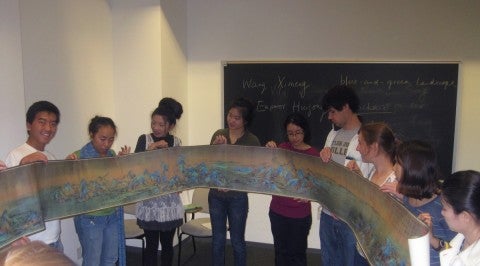"Queer Fragments of Byzantium"
In modern art and popular culture, Byzantium is rarely represented and when it is, it appears through cursory allusions. This talk will look at the fragments of Byzantium in modern popular culture to study the ways in which queer artists and authors deployed the period to imagine an alternative to the western Middle Ages.
===
Roland Betancourt is the Andrew W. Mellon Professor at the Center for Advanced Study in the Visual Arts at the National Gallery of Art from 2024-2026 and a 2023 Guggenheim Fellow. He is also Chancellor’s Professor in the Department of Art History at the University of California, Irvine. His research focuses on the Byzantine Empire, including its art, liturgy, and theology, with an interest in issues of sexuality, gender identity, and race. Betancourt is the author of four monographs, "The Secrets We Keep: Hidden Histories of the Byzantine Empire" (Getty Research Institute, 2024), "Performing the Gospels in Byzantium: Sight, Sound, and Space in the Divine Liturgy" (Cambridge University Press, 2021), "Byzantine Intersectionality: Sexuality, Gender, and Race in the Middle Ages" (Princeton University Press, 2020), and "Sight, Touch, and Imagination in Byzantium" (Cambridge University Press, 2018), as well as several edited volumes. His work also looks at the uses of the medieval past in the modern world, from its abuses by the far right to its representations in art and popular culture.

